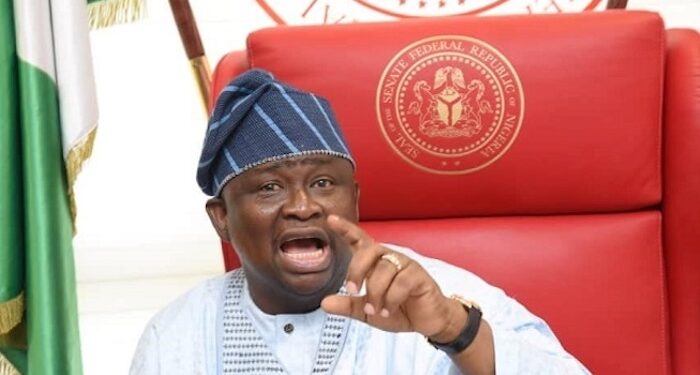Senator Solomon Adeola, Chairman of the Senate Committee on Appropriation, announced on Tuesday that the tax reform bills introduced by President Bola Tinubu have disrupted the traditional January-to-December budget cycle, which has been a hallmark of the National Assembly’s fiscal planning. The reforms, which aim to overhaul Nigeria’s tax system, have caused delays in the 2025 appropriation bill’s passage, but Adeola assured Nigerians that lawmakers are working tirelessly to meet the January 31, 2025 deadline.
The tax reform bills, which are currently under final review after successfully passing their second reading in the Senate, have demanded considerable time and effort from lawmakers. According to Adeola, this focus on tax reform efforts diverted attention from the usual budgetary process, which has now caused a shift in the timing of budget reviews.
Despite the setbacks, Adeola expressed confidence that the Senate and House of Representatives are on track to finalize the 2025 budget. “We are moving quickly to ensure that we meet the deadline,” said Adeola, explaining that joint sittings of both chambers would fast-track deliberations and engagements with relevant ministries, departments, and agencies (MDAs). He reassured Nigerians that the delay would not derail the government’s fiscal and economic objectives, especially in areas like infrastructure and economic growth.
“We remain committed to supporting President Tinubu’s policy goals. The January 31 deadline will allow the government to implement its programs effectively and on time,” Adeola concluded, calling on the public to be patient and remain optimistic.
Public Trust in Tax Systems Low Despite Recognition of Tax Contributions
While Nigeria navigates its tax reform challenges, a global survey titled Public Trust in Tax 2024 has highlighted significant trust issues in the way governments utilize tax revenues. Conducted by the Association of Chartered Certified Accountants (ACCA), the International Federation of Accountants (IFAC), and the Organisation for Economic Co-operation and Development (OECD), the survey examined tax systems in countries across Latin America, Africa, and Asia.
Despite 52% of taxpayers agreeing that taxes are a vital contribution to society, only 33% believe that tax revenues are used for the public good. Additionally, just 32% of respondents feel they receive a fair return on their taxes. The report stressed the importance of transparency, fairness, and public engagement in restoring faith in tax systems.
The survey found a notable discrepancy between the recognition of taxes as a societal contribution and the perception of how those taxes are spent, underscoring the need for stronger fiscal practices and improved communication between governments and taxpayers.
Helen Brand OBE, Chief Executive of ACCA, remarked on the survey’s findings: “Trust in tax systems is essential for sustainable development. Governments face significant challenges in building this trust, but these findings will guide evidence-based policy initiatives to improve global tax systems.”
In Malaysia, however, the survey showed more optimism, with 56% of Malaysians believing that taxes contribute to the community, and 43% agreeing that tax revenues are spent for the public good.


